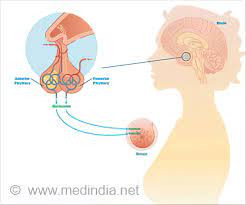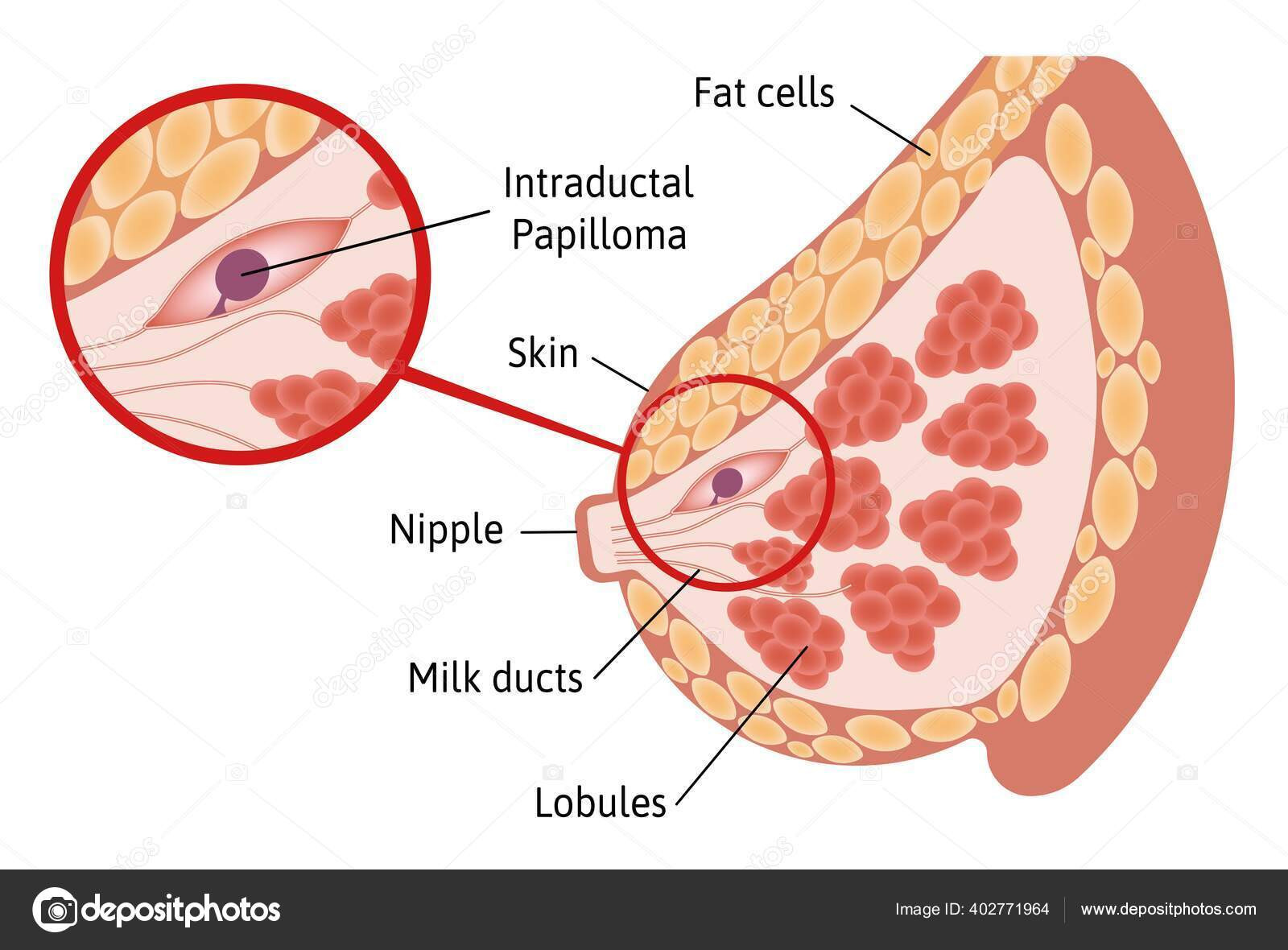Definition
Galactorrhea is a condition where your breasts secrete a milk-like white fluid when you are not breastfeeding. Galactorrhea is not a disease, but it can indicate the presence of certain medical conditions. It usually occurs in women of childbearing age, between 20-35 years. This condition can also be found in women who have never been pregnant, menopausal women, and even men and children.
Generally, galactorrhea is caused by hyperprolactinemia, a condition where the hormone prolactin is excessively present in the body. Prolactin is a hormone responsible for producing breast milk. Hyperprolactinemia is more common in women, occurring in about 9% to 17% of women with reproductive disorders worldwide.
Galactorrhea is not life-threatening and can be treated depending on its cause. Although the cause of galactorrhea may be unknown in some cases, most people with galactorrhea can continue their daily activities as usual. They can also use breast pads to prevent milk leakage on clothing.
If you are interested in knowing more about the menopause, you can read it here: Menopause - Definition, Cause And Risk Factor.
Causes
Galactorrhea is predicted to occur due to an increase in the prolactin hormone produced by the pituitary gland in the brain. Excessive prolactin levels can send false signals to the body to produce milk, which is why your breasts secrete fluid in the condition of galactorrhea.
Abnormal increases in the prolactin hormone can be found in prolactinoma, a benign tumor in the pituitary gland. Other causes of galactorrhea include:
- Certain medications, such as birth control pills, blood pressure medications, opioids, or antidepressants
- Excessive breast stimulation
- Thyroid gland disorders
- Chronic kidney disease
- Consumption of herbal supplements or untested drugs without medical supervision and recommendation
- Spinal cord injury
- Burns or injuries to the chest area
- Excessive stress
If the cause of galactorrhea is unknown, it is referred to as idiopathic galactorrhea. It may occur because your breast tissue is overly sensitive to prolactin in the blood. In men, galactorrhea is most often caused by low testosterone levels. If testosterone levels drop, galactorrhea may be accompanied by other complaints such as erectile dysfunction or decreased sexual desire.
In newborns, galactorrhea can occur due to high levels of maternal estrogen crossing the placenta into the baby's bloodstream. It can cause breast tissue enlargement in the baby and is associated with the discharge of fluid from the baby's nipple. This condition is usually temporary and will resolve on its own. However, if symptoms persist, a doctor should evaluate the condition.
Risk Factor
Factors that can increase the risk of galactorrhea include:
- Female gender
- Ages 20 to 35 years
- Women who are breastfeeding or who have been pregnant
- Family history of pituitary gland tumors
- Men with gynecomastia or enlarged breasts
- Consumption of hormonal contraceptives
Symptoms
The main symptom of galactorrhea is the discharge of milk-like white fluid from the breasts when not breastfeeding or pregnant. This condition usually affects both breasts. The fluid can leak spontaneously or when the nipples are stimulated.
Other symptoms that may occur with galactorrhea include:
- Amenorrhea (absence of menstrual cycles)
- Vaginal dryness
- Headache
- Decreased sexual desire
- New hair growth on the chin and chest
- Acne
- Erectile dysfunction
Diagnosis
Medical Interview
The doctor will conduct a medical interview to gather more information about the patient's complaints. The doctor will also ask about:
- Duration of the complaint
- Past medical history and treatments undertaken
- Family medical history
- Daily activities and diet
- Pregnancy and breastfeeding history
- Menstrual cycle patterns
Physical Examination
Next, the doctor will perform a physical examination of the patient's breasts and entire body. The condition of the breasts and nipples will be assessed for:
- Swelling and lumps
- Changes in color and texture
- Leakage or discharge from the nipples
Additional Tests
Blood tests may be conducted to check for elevated levels of certain hormones such as prolactin or thyroid hormone. A pregnancy test may also be performed to ensure that galactorrhea is not due to increased pregnancy hormones. Additionally, the fluid discharged from the nipples can be analyzed in the laboratory.
Other diagnostic imaging, such as breast ultrasound or mammography, may be recommended if there is suspicion of a breast lump or nipple discharge. Lastly, an MRI of the brain may be performed to rule out tumors or abnormalities in the pituitary gland.
Management
The treatment for galactorrhea depends on its cause. If the cause is unknown (idiopathic galactorrhea), it often resolves on its own. Below are treatments for galactorrhea based on its cause:
- Excessive prolactin levels will be treated to reduce them if galactorrhea is caused by hyperprolactinemia
- Avoid activities that excessively stimulate the breasts and nipples
- If galactorrhea is caused by certain medications, the doctor may adjust the dosage or type of medication
- Surgical and radiotherapy treatments if galactorrhea is due to pituitary gland tumors
You can read about prolactinemia here: Prolactinemia - Definition, Cause And Risk Factor
Complications
Complications from galactorrhea can include:
- Itchy breasts due to moist nipples from fluid leakage
- Breast sores
- Decreased self-confidence due to an unfamiliar condition
- Osteoporosis in women with galactorrhea due to pituitary tumors, as there is a risk of decreased estrogen levels
Additionally, the treatment for galactorrhea can lead to complications such as:
- Infertility
- Vision problems
Prevention
The following tips can help prevent galactorrhea:
- Use breast pads to prevent friction between the breasts and clothing
- Perform breast self-exams (BSE) monthly to detect any abnormal fluid or changes in the breasts early
- Avoid excessive breast stimulation
- Avoid unapproved herbal supplements or medications unless recommended by a doctor
- Avoid tight clothing or bras
When to See a Doctor?
See a doctor if you experience symptoms of galactorrhea, such as fluid discharge from the nipples when not breastfeeding or pregnant. Pay attention if the fluid is accompanied by blood, has an odor, or does not stop. You can consult a general practitioner or an obstetrician-gynecologist to investigate the cause of galactorrhea further and determine appropriate treatment.
Looking for more information about other diseases? Click here!
- dr Hanifa Rahma
Cleveland Clinic - Galactorrhea. (2022). Retrieved 11 October 2022, from https://my.clevelandclinic.org/health/diseases/17924-galactorrhea.
Mayo Clinic - Galactorrhea. (2021). Retrieved 11 October 2022, from https://www.mayoclinic.org/diseases-conditions/galactorrhea/symptoms-causes/syc-20350431.
SKY. Gosi., VV. Garla., (2021). Galactorrhea. Retrieved 11 October 2022, from https://www.ncbi.nlm.nih.gov/books/NBK537115/.










